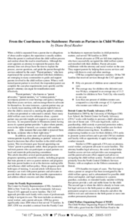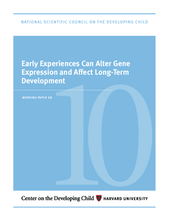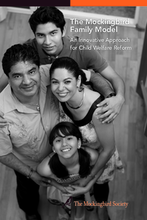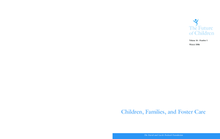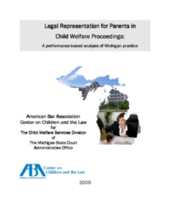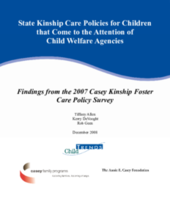Displaying 2111 - 2120 of 2176
This article describes several parent partner/advocate programs operating around the United States, including programs that train parents to serve as parent mentors and programs that train parent leaders to sit at the decision-making table and influence child welfare policy.
This in-depth working paper explains how genes and the environment interact, and gives recommendations for ways that caregivers and policymakers can effectively respond to the science.
From preventative strategies to transitional and permanency solutions, the Mockingbird Family Model (MFM) offers a comprehensive support structure for families and children across the continuum of the child welfare experience. This resource briefly describes the MFM and its current activities.
This book features individual empirical studies on the outcomes and progress made for children in foster care around the world.
Provides global estimates of the number of highly vulnerable children; a summary of United States Government (USG) assistance programs for highly vulnerable children; a summary of progress coordinating the response among USG agencies; key strategic issues and opportunities; priorities for 2009–2010 and beyond; and a summary of the results and achievements of USG assistance
This paper examines the efficacy of Independent Living (IL) services in the United States in preparing foster youth to live “independently”, and calls into question the appropriateness of an “independence” goal for youth aging out of foster care.
The current assessment is the fourth in a series of independent assessments examining core systemic issues in Michigan’s child protection system.
Explores the disparity in support given to children in formal foster care in the United States compared to those in informal kin arrangements
In this meta-analysis of 75 studies on more than 3,888 children in 19 different countries, the intellectual development of children living in children's homes (orphanages) was compared with that of children living with their (foster) families.

